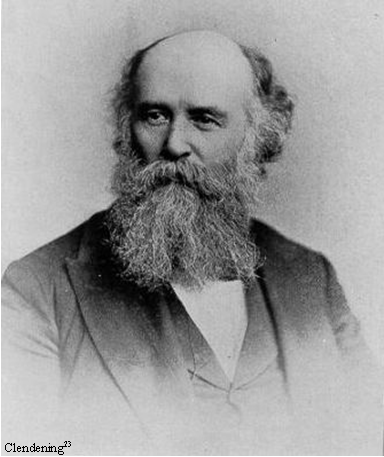John Alexander Dowie

The Pentecostal movement and Pentecostal theology has been known for a ministry of divine healing. Donald Dayton lists four cornerstones doctrines in Pentecostal theology. Among them is the doctrine of divine healing.1 The practice of divine healing did not enter into the ministry of Pentecostals by some emotional meeting under a canvas tent. Historically, it did not arrive suddenly from heaven as a “new revelation.” Rather, healing by divine agency came from a biblically based theological system. John Alexander Dowie and others spread the doctrine of divine healing throughout the late 19th century and the beginning of the early 20th century. Although he was often known for his flamboyant style and bold presence, his message of divine healing was rooted in such a theological system. Dowie’s theology of divine healing can be expressed in a two-fold scheme: one, the continual ministry of Christ, and two, the evil of sickness.
Historically, Dowie is an important figure in the divine healing movement of the last two centuries. David Harrell, who chronicled the healing revivals in America, calls Dowie “the father of healing revivalism in America.”2 This title does not imply that Dowie was the sole originator of the modern healing revival, but rather that his influence was so widespread that he is deserving of the title “father.” Dayton acknowledges that Dowie was a major source of Pentecostal doctrines of healing and that these doctrines grew out of the already existent Holiness teaching yet “being restated in a more distinctly Pentecostal vein.”3 While the Holiness teachings on healing from Charles Cullis, Boardman, A. B. Simpson, Gordon, and Andrew Murray played a role in the Pentecostal ministry of healing, none had quite the same effect as Dowie. Those who were influenced by Dowie include: F. F. Bosworth, John G. Lake, Charles Parham, and Lilian B. Yeomans, as well as various missionaries who went around the world with Dowie’s theological perspective on healing. Bosworth, Lake, and others later joined the Azusa Street Revival in Los Angeles. Walter Hollenweger estimates that Dowie “exercised a considerable influence to the early Pentecostal movement.”4
For Dowie, there is no cessation of the ministry of healing, because there is no cessation of Christ.
First – That ‘Jesus, the Christ, is the same yesterday, to-day [sic] and forever,’ and being so, He is unchanged in power and in will. … Second – That Disease, like Sin, is God’s enemy, and the devil’s work, and can never be God’s will. Peter said in the household of the Centurion Cornelius, Acts 10:38: ‘God anointed Jesus Christ with the Holy Ghost and with power; who went about doing good and HEALING ALL THAT WERE OPPRESSED OF THE DEVIL, for God was with Him.’ 7
These two doctrines are the foundation of Dowie’s theology of divine healing.
Category: Church History, Winter 2006


